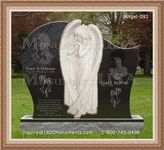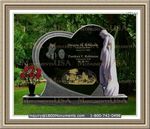|
Conventions To Learn At Jewish Funeral Services
Certain rituals are normally performed at a Jewish funeral. These rituals vary, mainly depending on which community the deceased is from and the person who is officiating the wedding. Some officials are quite strict in observing that all rituals are performed as required, while others are flexible. The customs carried out aim at showing respect to the deceased as well as the mourners.
Burial is normally carried out within a day when a person dies. The burial may be postponed for another day or two, so as to wait for any close family member who has to travel from a far place to attend the burial. It's totally up to the family to decide whether the burial should be postponed or whether it should go ahead as required by custom.
The casket is normally kept sealed at the memorial service. It is generally considered rude to look at someone who cannot look back at you. A plain and simple coffin is used. The coffin should be made from wood only as not metal parts are allowed, as metal does not decompose.
For the process of decomposition to take place naturally, embalming is not allowed. However, since Jewish customs are subject to local laws, it may be necessary to have the body embalmed. This is so as to satisfy the public health regulations set by the local council.
The burial ceremony does not take a long time. It can be completed in less than half an hour. Flowers are normally considered as frivolous adornments, so they are often avoided at burials. If you wish, you can choose to have a small floral tribute, as long as the officiant is not opposed to it. Mourners cannot talk to the attendees until the whole burial ceremony is over.
At the conclusion of a Jewish funeral, mourners pass through the middle of the parallel line formed by the attendees. The attendees recite consoling words to the mourners. To symbolically cleanse themselves, mourners can wash their hands when leaving the graveside.
|
|



























